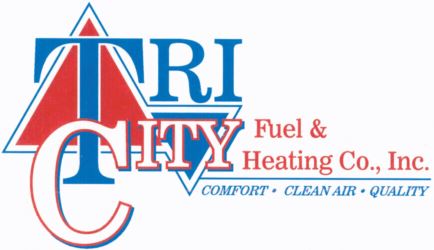
To avoid rising energy costs and work toward a more sustainable life, many homeowners are trying new methods to maintain comfort levels while using less energy. As part of the Inflation Reduction Act, federal tax credits are available for energy-efficient home upgrades, especially HVAC systems like air conditioners. These credits offer a big chunk of the installation costs, provided that homeowners select qualifying equipment and submit the appropriate form.
If you’re trying to avoid a long process, we’re offering to help! Tri City Fuel & Heating hopes this guide will give you what you need to secure 2024’s HVAC tax credits. Here’s what you should know.
How Do These Tax Credits Work?
These valuable tax credits for boosting your home’s energy efficiency are just one small part of the recent Inflation Reduction Act. With the higher cost of energy making an impact, helping more homeowners upgrade their equipment is always beneficial. The primary goal of these credits is to reduce the cost of installing high efficiency upgrades. The two we’ll cover are the Energy Efficiency Home Improvement Credit and the Residential Clean Energy Credit.
Don’t forget, in order to be eligible for tax credits, you’ll have to complete IRS Form 5695. Additionally, this form has to be submitted within the same tax year any upgrades were installed, not purchased.
Maximizing Savings with the Energy Efficiency Home Improvement Credit
Through 2032, the Energy Efficiency Home Improvement Credit provides up to $3,200 annually for installing higher efficiency home upgrades. This amounts to 30% of the total project’s cost. Keep in mind that in order to be eligible for the maximum amount, it means making severel investments. For example, you’ll receive up to $2,000 for installing a higher efficiency heat pump. This can be combined with the remaining $1,200 in credits for other eligible upgrades made within the tax year.
While heat pumps are a key target for this incentive, high-efficiency furnaces, air conditioners, boilers, and other HVAC systems are still eligible for this tax credit. You’ll need to confirm the make and model’s energy efficiency rating is high enough for eligibility.
Exploring the Residential Clean Energy Credit
The Residential Clean Energy Credit offers 30% savings on a number of other residential clean energy equipment upgrades. Eligibility is restricted to homeowners looking for new clean energy solutions for their home. While the Home Improvement Credit works primarily with utilities and HVAC systems, this credit is instead designed around renewable energy sources like solar and wind energy.
Some specific items in this tax credit include requiring the installation project to be finished between 2022 and 2032. But at the same time, homeowners can use any excess credit to reduce taxes in future years. This is a great way to make things a little easier when investing in renewables.
Additional Qualifications for Energy Tax Credits
Because HVAC systems are one of the major reasons for high energy bills, these tax credits incentivize the most energy-efficient options. But home energy efficiency can be improved in lots of other ways. Apart from the previously listed HVAC upgrades, {you could also choose|other eligible items include|you also have access to:
- Energy-saving heat pump water heating systems
- Modern electrical panel improvements
- Upgraded electrical wiring
- Insulation, air sealing and ventilation enhancements
- Energy-efficient cooking appliances like stoves, cooktops, and ovens
- Efficient heat pump clothes drying solutions
- Water boilers
Just like with installing one or more HVAC systems, you’ll need to check that your chosen products meet the required energy efficiency ratings.
Maximizing Your 2024 HVAC Tax Credits: Top 3 Tips
While any of these upgrades can enhance your home's energy performance, a little planning will ensure more long-term benefits. Maximize your HVAC tax credits with these reminders:
- Perform an energy audit to pinpoint valuable enhancements. Trust experienced HVAC companies to pinpoint essential products and services.
- Improve your home's thermal efficiency with better windows and doors.
- Explore potential rebates from utility companies for clean energy upgrades. Renewable sources like solar, wind, and geothermal contribute to community power grid sustainability.
- Don’t forget financing options from local service companies, which can help reduce costs even more.
Secure Your 2024 HVAC Credits with Help from Tri City Fuel & Heating
Partner with local HVAC professionals like Tri City Fuel & Heating for help with home energy audits and new installation projects. Our helpful installers can deliver whatever you need for a more energy-efficient home.


